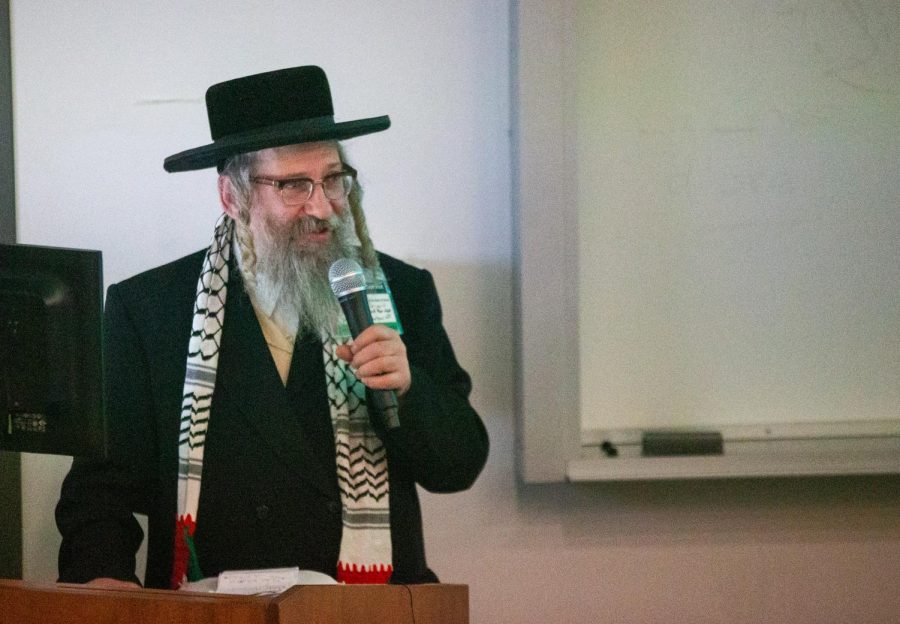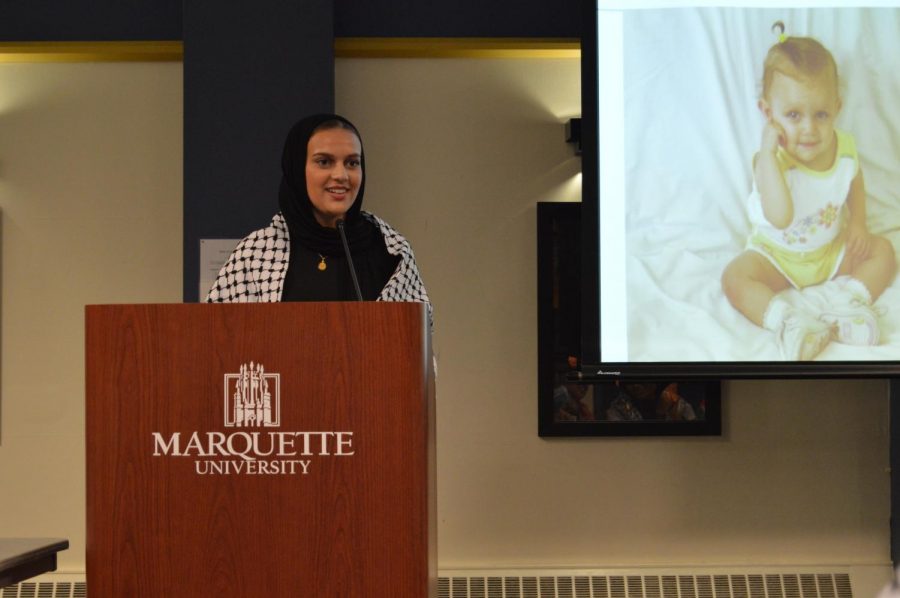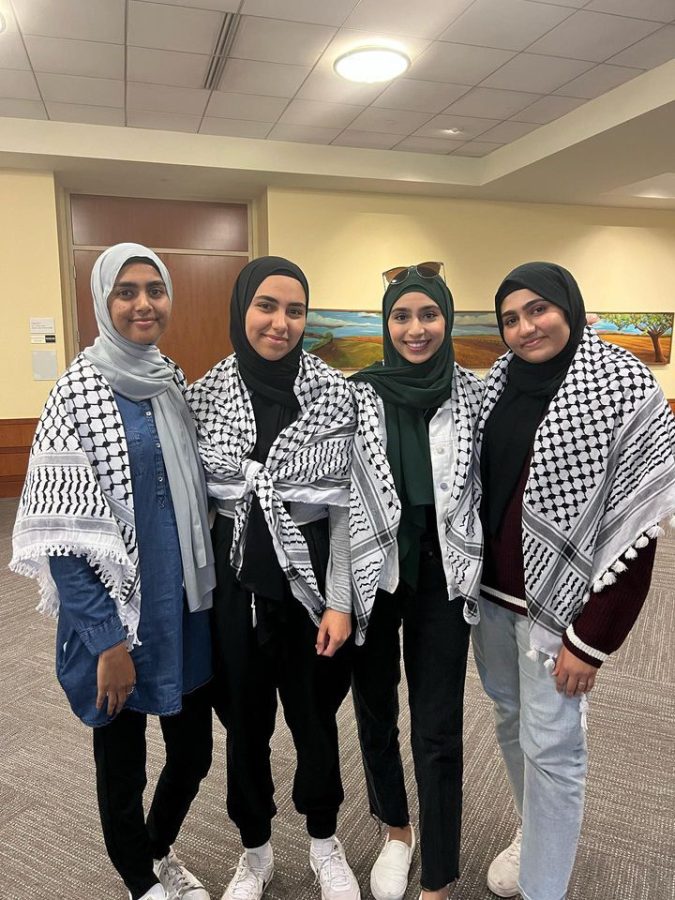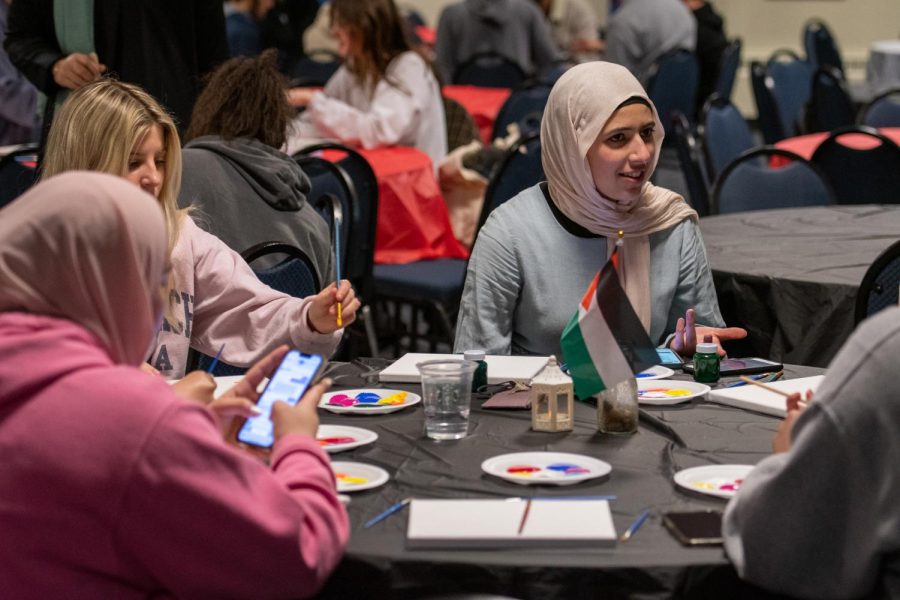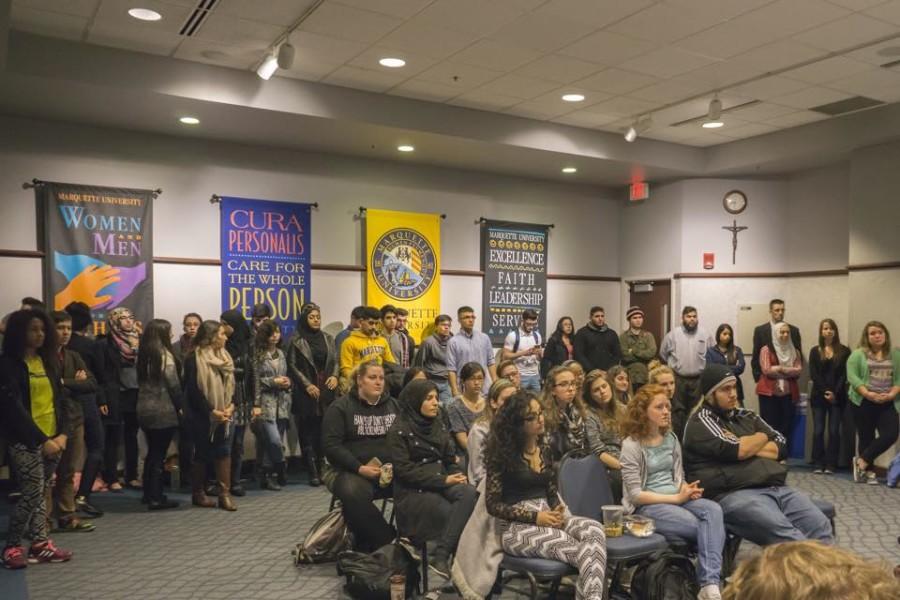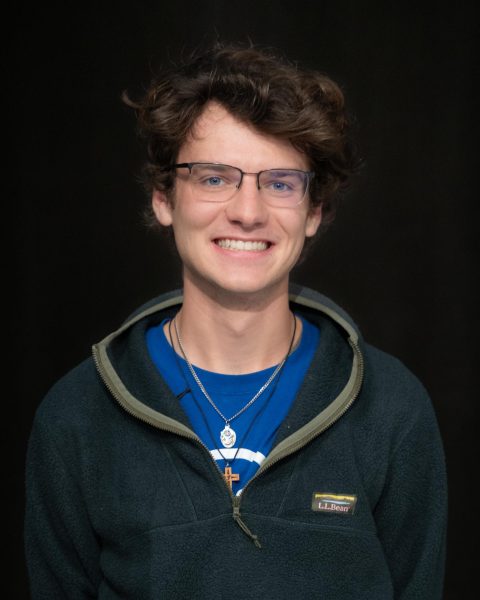Social Justice for Palestine hosted their first event of the semester Feb. 17 in Marquette Hall, hosting an open dialogue with Rabbis speaking up against Zionism, the ideology of an independent Israeli nation. Social Justice for Palestine hopes that this dialogue will shed a different light on the territorial situation in Israel-Palestine.
Rabbi David Weiss is an observing Jew from New York and an anti-Zionist activist. He came to Marquette to inform attendees about the differences between Zionism and the Jewish religion. Weiss said in the discussion that Zionists do not represent the true meaning of what it means to be Jewish. Instead, he said Zionism is a nationalist ideology that over the last 100 years been associated with the Jewish faith.
Weiss said that becoming an activist has given him a chance to clarify the misconception that all Jews are Zionists and vice-versa. Zionism arose in the late 19th century during rise of nationalism across Europe. Zionist ideology grew in response to a rise in anti-Jewish discrimination and persecution across societies with Jewish inhabitants. Advocates for Jewish statehood argued that it would provide a safe space from oppressors.
“I think the event went really well. This was probably one of the biggest turnouts we’ve had in a while and we had people from the Marquette Community but also outside. I think any event where people get to see another perspective and another world view and just learn is a successful event,” Lena Abukhamireh, senior in the College of Health Sciences and President of SJP, said.
The term “Zion” originated during the year 538 BCE when Jews were allowed to return to Zion, or the Holy Land of Israel, after being exiled by the Babylonians. The nation of Israel was founded after the Second World War in 1948 where Jews lived among Arabs for thousands of years.
“I thought it was amazing, I didn’t think I could have so many questions,” Leya Rizeq, senior in the College of Arts & Sciences, said. “I think Rabbi Weiss really introduced topics that a lot of people believe are controversial or believe they shouldn’t be spoken about. Especially with how upfront he is in his opinions and knowing that he could potentially be attacked.”
In May 2021, air raids in Gaza flattened buildings and killed civilians. Which led to an investigation against the Israeli government under the rule of former Primer Minister of Israel Benjamin Netanyahu.
Eman Khatib, a senior in the College of Health Sciences and Palestinian-American, lived in Palestine for 10 years with her family who still lives in the area. Khatib said hearing someone speak up against Zionism means a lot and hits home especially since her family was affected by the events in May.
“It’s amazing seeing other people feeling your your pain,” Khatib said. “When all the bombings were going on in May that affected my family… and it’s amazing to see Jews speaking up and condemning it.”
Khatib said she is thankful to participate and listen to this discussion on campus. She emphasized the importance of being well informed and thinking critically about these events.
“Many people don’t understand what Zionism is or what anti-Semitism even means … People need to understand the meaning instead of just following blindly,” Khatib said.
Weiss said that both Israelis and Palestinians should coexist. He notes that in previous centuries both Palestinians and Israelis lived and worked together in communities. It was only until the recent Zionist movement did people start to draw lines in the sand against one another. But Weiss said this is not the way it should be when following the word of the Lord written in the Torah.
Weiss said that many times traditional outlets are worried to speak out against Zionism in fear of coming across as anti-Semitic. It’s not anti-Semitic to be anti-Zionist, Weiss said, signifying the difference between the religious faith from the political ideology.
“You typically wouldn’t think you would learn about anti-Zionism from a Jew,” Abukhamireh said. “And when you have that type of presentation it brings more attraction and shows that this is an important issue that is not solely just a Muslim issue, it is a human issue.”
Students in support of Palestine wear keffiyehs to represent and stand up for the Palestinian cause. Keffiyehs are cloth scarves with black and white designs which all symbolize different parts of Palestinians culture.
Weiss and attendants at the discussion emphasized the importance of being actively informed, not being afraid to ask questions, and propagating what they learned with those who might not be aware of what is currently going on in Israel-Palestine.
This article was written by Connor Baldwin. He can be reached at [email protected]


